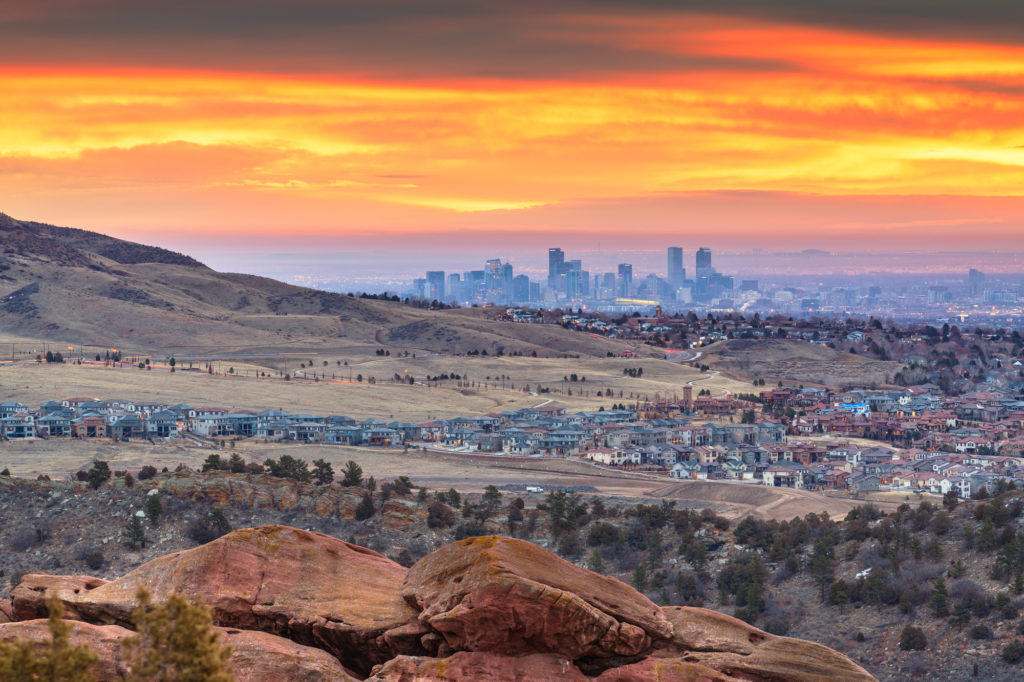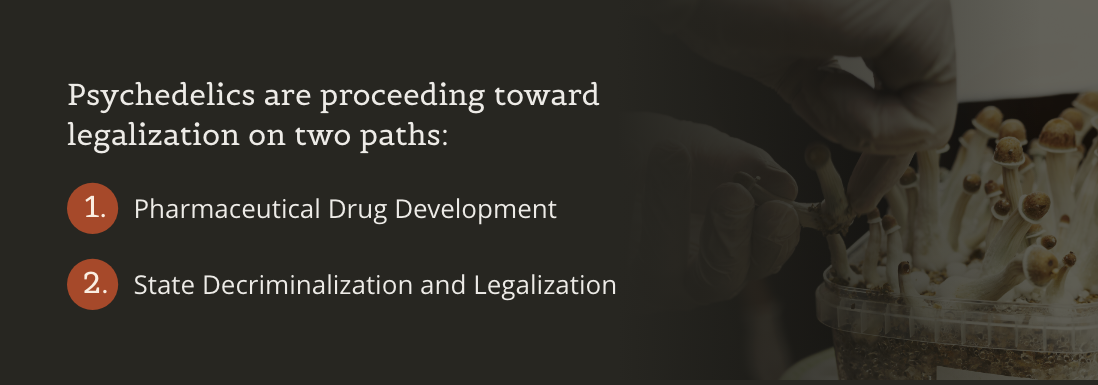Next month, Colorado voters will decide the fate of Proposition 122, named the Natural Medicine Health Act of 2022 (NMHA). If passed, NHMA would legalize a host of psychedelics in Colorado. Today, we’ll look at what NMHA would do.
Natural Medicine Health Act of 2022
NMHA is modeled on – or at least influenced by – Oregon’s Measure 109, though it’s broader. The Department of Regulatory Affairs (DRA) would have jurisdiction over Colorado licensing. NMHA would also establish a Natural Medicine Advisory Board (NMAB) similar to how Oregon created the Oregon Psilocybin Advisory Board. The NMAB would consist of 15 members (same number as Oregon) appointed by Colorado’s governor by January 31, 2023. NMAB would include:
(a) AT LEAST SEVEN MEMBERS WITH SIGNIFICANT EXPERTISE AND EXPERIENCE IN ONE OR MORE OF THE FOLLOWING AREAS: NATURAL MEDICINE THERAPY, MEDICINE, AND RESEARCH; MYCOLOGY AND NATURAL MEDICINE CULTIVATION; PERMITTED ORGANIZATION CRITERIA; EMERGENCY MEDICAL SERVICES AND SERVICES PROVIDED BY FIRST RESPONDERS; MENTAL AND BEHAVIORAL HEALTH PROVIDERS; HEALTH CARE INSURANCE AND HEALTH CARE POLICY; AND PUBLIC HEALTH, DRUG POLICY, AND HARM REDUCTION.
(b) AT LEAST EIGHT MEMBERS WITH SIGNIFICANT EXPERTISE AND EXPERIENCE IN ONE OR MORE OF THE FOLLOWING AREAS: RELIGIOUS USE OF NATURAL MEDICINES; ISSUES CONFRONTING VETERANS; TRADITIONAL INDIGENOUS USE OF NATURAL MEDICINES; LEVELS AND DISPARITIES IN ACCESS TO HEALTH CARE SERVICES AMONG DIFFERENT COMMUNITIES; AND PAST CRIMINAL JUSTICE REFORM EFFORTS IN COLORADO. AT LEAST ONE OF THE EIGHT MEMBERS SHALL HAVE EXPERTISE OR EXPERIENCE IN TRADITIONAL INDIGENOUS USE OF NATURAL MEDICINES.
Colorado’s Rules
NHMA requires DRA to adopt rules by January 1, 2024 for the qualification of facilitators (which I’ll define below), and by September 1, 2024 for the implementation of NHMA. To make its rules, NHMA will be required to confer with NMAB. Colorado’s rules will include things like:
- Requirements for safe provision of natural medicine services
- Licensing requirements for facilitators
- Rules governing operation of a healing center (which I’ll define below)
- Equity and inclusivity rules
- Application and licensing fee requirements
- Public education campaigns
- Dosage recommendations for off-site use
- Data collection
Most of the above criteria have numerous sub-criteria, so if you’re interested in what DRA would do, you’d want to check out NMHA’s text. Even after DRA takes the reigns and begins licensing, NMAB will still be required to make recommendations to DRA on various matters, which I won’t get into in full in this post.
Licensing Requirements
NMHA is pretty broad in how it would define various licensing requirements. For example, it mentions licensed “healing centers,” broadly defined as entities that cultivate, manufacture, deliver, transport, supply, sell, or dispense “natural medicine” in the state of Colorado. It’s safe to assume DRA will break healing centers out into sub-license types based on experience in other regulated markets. Manufacturing products v. dispensing them is a completely different process that requires different things, so it’s safe to expect to see much different licensing requirements.
NHMA defines “natural medicine” to include DMT, ibogaine, mescaline (though not peyote), psilocybin, and psilocyn. That said, until June 1, 2026, only psilocybin or psilocin could be dispensed. In order to dispense the other forms of natural medicine, at some point after June 1, 2026, NMAB would have to recommend to DRA that the other forms of natural medicine should be dispensed. DRA would need to prepare proposed dispensation rules for each new form of natural medicine, and could do so on an anticipatory basis even before June 1, 2026.
DRA would also license “facilitators,” persons over 21, to facilitate the consumption of natural medicine at healing centers. Persons over the age of 21 would be able to consume natural medicine in facilitation sessions under the care of a facilitator.
Local Control
NMHA does some pretty interesting things with respect to local control. It permits Colorado localities to adopt rules affecting permitted hours of operation. That said, the law is pretty clear that localities cannot ban or completely prohibit licensed healing centers or health-care facilities, ban transportation of natural medicine on public roads by licensees, or otherwise adopt regulations that are unreasonable or conflict with NMHA. This is a good move! I come from California where state cannabis laws gave way too much power to localities to ban cannabis activities, which has created massive problems for the industry and consumers alike. At the same time, when a statewide bill takes local control away to this degree, it will undoubtedly be met with resistance from cities that want to preserve control.
NMHA would also do a host of other things that are worth noting in passing:
- It contains language noting that natural medicine contracts are not unenforceable due to violation of federal law
- It protects holders of occupational licenses from disciplinary proceedings within the state
- It contains protections for certain limited personal use and cultivation for persons over 21
Dosage Recommendations for Off-Site Use
One last note about NMHA that you might have missed if you read this quickly is a reference to NMAB making dosage recommendations for off-site use. The law does not really cover off-site use, which is not permitted in Oregon. If Colorado ever went the way of allowing offsite use, that would be a dramatic departure from Oregon’s model.
If you’re interested in Colorado’s natural medicine regulation, stay tuned to the Psychedelics Law Blog for more details.


























